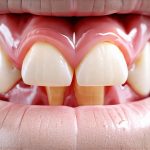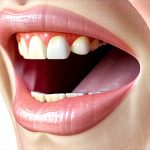Gastroesophageal reflux disease (GERD) is a surprisingly common condition affecting millions worldwide. While often associated with heartburn, its manifestations can be incredibly diverse, extending far beyond that familiar burning sensation. Many individuals experience GERD not as classic indigestion, but as a persistent urge to clear their throat – a seemingly innocuous habit that can become intensely disruptive, particularly in public settings. This constant clearing isn’t merely a quirk; it’s frequently a symptom of acid reflux irritating the esophagus and triggering a protective mechanism, leading to frustration, social anxiety, and a significant impact on quality of life. Understanding the role between GERD and chronic throat clearing is crucial for both recognizing the issue and seeking appropriate support.
The discomfort caused by GERD-related throat clearing often goes beyond the physical sensation. It can create a cycle of self-consciousness, where the anticipation of needing to clear one’s throat during important meetings, presentations, or social interactions becomes a source of significant stress. Individuals may feel embarrassed, judged, or even perceive themselves as rude or disruptive. This anxiety can further exacerbate the problem, creating a feedback loop where stress worsens reflux and increases the need for throat clearing. It’s vital to remember that this isn’t simply a nervous habit; it’s often a physical response to an underlying medical condition deserving attention and management.
The Connection Between GERD and Throat Clearing
The relationship between GERD and constant throat clearing stems from how stomach acid affects the upper digestive tract and surrounding areas. When stomach acid repeatedly flows back up into the esophagus (acid reflux), it doesn’t just irritate the esophageal lining. Acid can travel further, reaching the larynx (voice box) and pharynx (throat). This is known as laryngopharyngeal reflux (LPR), sometimes referred to as silent reflux because it often lacks the typical heartburn symptoms associated with GERD. The body responds to this irritation in several ways, one of which is increased mucus production – a natural attempt to neutralize the acid and protect the delicate tissues.
This excess mucus, coupled with the sensation of acid irritation, triggers the urge to clear the throat. It’s not necessarily that there’s something in the throat needing removal; it’s the feeling of discomfort that prompts the clearing reflex. Furthermore, the repeated action of throat clearing itself can actually worsen the problem. The forceful expulsion of air and mucus can irritate the esophageal lining and contribute to further reflux episodes, creating a vicious cycle. This is why addressing the underlying GERD or LPR is essential rather than simply trying to suppress the symptom of throat clearing. Understanding antacids can also play a role in managing acid production.
The silent nature of LPR often makes diagnosis challenging. Many individuals with LPR don’t experience traditional heartburn symptoms, leading them to believe their problem isn’t related to acid reflux. They may attribute the throat clearing to allergies, postnasal drip, or even habit. This delay in diagnosis can mean that the condition goes untreated for years, allowing it to progress and potentially lead to more serious complications like vocal cord damage or esophageal strictures. Recognizing the subtle signs of LPR, including chronic cough, hoarseness, and persistent throat clearing, is the first step toward effective management.
Identifying Potential Triggers & Lifestyle Adjustments
Pinpointing specific triggers for GERD and subsequent throat clearing can significantly aid in managing the condition. It’s rarely a single cause but rather a combination of factors. – Dietary choices play a major role: certain foods are known to exacerbate reflux, including fatty or fried foods, chocolate, caffeine, alcohol, spicy foods, citrus fruits, and tomatoes. – Timing of meals is also important; eating large meals close to bedtime can increase the risk of nighttime reflux. – Lifestyle factors such as smoking, obesity, and stress also contribute significantly. Smoking weakens the lower esophageal sphincter (LES), allowing acid to escape more easily. Obesity puts increased pressure on the abdomen, forcing stomach contents upward. And chronic stress can disrupt digestive processes and worsen reflux symptoms. Meal timing is a crucial part of managing these factors.
Making targeted lifestyle adjustments can often provide substantial relief. These include: 1. Elevating the head of your bed by 6-8 inches – this helps gravity keep stomach acid down during sleep. 2. Avoiding eating for at least three hours before bedtime. 3. Losing weight if you are overweight or obese. Weight management can significantly reduce abdominal pressure. 4. Quitting smoking. 5. Managing stress through techniques like yoga, meditation, or deep breathing exercises. 6. Identifying and eliminating trigger foods from your diet. It’s important to note that dietary changes should be made gradually and monitored carefully to determine which foods specifically exacerbate symptoms.
While lifestyle modifications are often the first line of defense, they aren’t always enough. In some cases, medical intervention is necessary to effectively manage GERD and LPR. This may involve over-the-counter medications like antacids or H2 blockers to neutralize stomach acid, or prescription proton pump inhibitors (PPIs) to reduce acid production. It’s crucial to consult with a healthcare professional before starting any medication regimen, as long-term use of PPIs can have potential side effects.
The Role of Vocal Hygiene and Speech Therapy
For individuals whose throat clearing has become deeply ingrained, vocal hygiene techniques and speech therapy can be incredibly beneficial. Vocal hygiene involves practices aimed at minimizing strain on the voice box and reducing irritation. This includes staying well-hydrated, avoiding excessive yelling or whispering, and limiting caffeine and alcohol consumption (which can dry out the vocal cords). It also involves learning to use your voice efficiently without forcing or straining.
Speech therapy focuses on retraining the muscles involved in throat clearing and developing alternative strategies for managing discomfort. A speech therapist can help identify the specific mechanisms driving the habit – is it a conscious effort to clear mucus, or an unconscious reflex triggered by acid reflux? They can then teach techniques such as: – Sip-and-swallow exercises to lubricate the throat without forceful clearing. – Relaxation techniques to reduce tension in the neck and shoulder muscles, which can contribute to vocal strain. – Strategies for modifying speech patterns to minimize irritation – for example, slowing down your rate of speech or using a softer voice. Chewing gum might even offer some temporary relief by increasing saliva production.
These therapies are not intended to cure GERD, but rather to manage the symptomatic behavior of throat clearing and reduce its impact on daily life. They empower individuals to take control of their vocal habits and regain confidence in social situations. Often, combining speech therapy with medical management of GERD provides the most comprehensive approach to addressing this challenging symptom.
Seeking Professional Evaluation & Diagnosis
If constant throat clearing is significantly impacting your quality of life, it’s essential to seek professional evaluation from a healthcare provider. This usually begins with a visit to your primary care physician, who can assess your symptoms and medical history. They may recommend further testing to determine the underlying cause of your throat clearing and rule out other potential conditions. Common diagnostic tests include: – Esophageal manometry: measures the pressure within the esophagus. – Endoscopy: allows visualization of the esophageal lining for signs of inflammation or damage. – pH monitoring: assesses the amount of acid reflux occurring over a 24-hour period. – Laryngoscopy: examines the larynx (voice box) for signs of irritation or swelling. Bile’s role in digestion can also be a factor to consider during evaluation.
Based on the results of these tests, your doctor can develop an individualized treatment plan tailored to your specific needs. This may involve lifestyle modifications, medication, speech therapy, or a combination of all three. It’s important to be open and honest with your healthcare provider about your symptoms, concerns, and any medications you are taking. Don’t hesitate to ask questions and advocate for yourself – you deserve to find relief from this frustrating symptom and regain control over your health and well-being. Remember that early diagnosis and intervention can prevent the condition from progressing and minimize long-term complications.


















